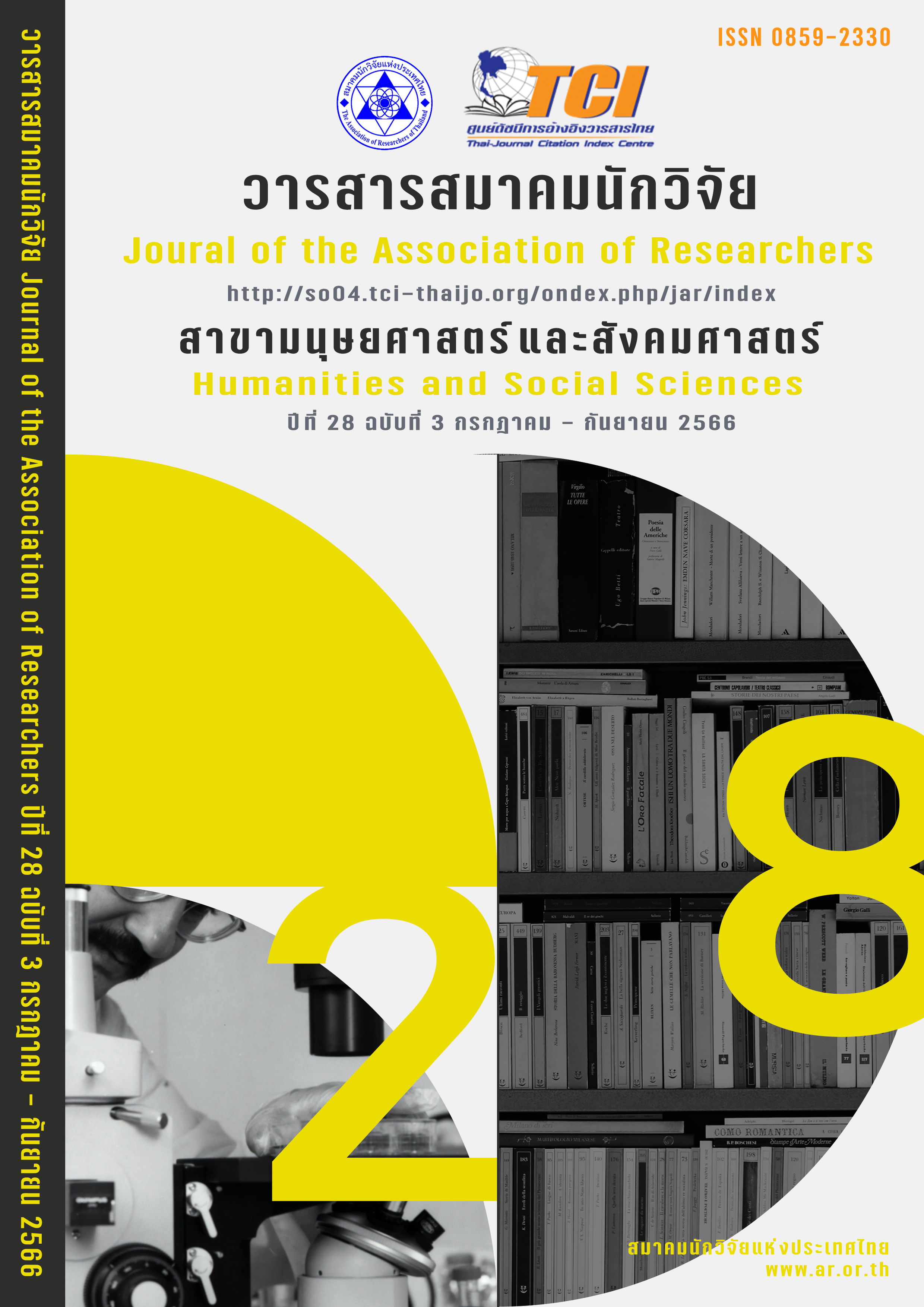Developing an online game application to complement teaching and learning in graduate courses Sukhothai Thammathirat Open University Developing an online game application to complement teaching and learning in graduate courses Sukhothai Thammathirat Open University
Main Article Content
Abstract
Research objectives: 1) to develop online game application to complement teaching through smartphones, and 2) to study teaching results by using an online game application to enhance teaching through smartphones. The research process consisted of 2 steps: 1) Develop a game application to enhance teaching-learning on smartphones; and 2) Study the learning outcomes by using an online game application. The sample group in the focus group were experts in teaching and learning styles. And development the application for 11 people and students that registered for the course 91727 Administration and Communication for Agricultural Extension and Development at least 30 people were the experimental group. The results of the research were as follows: 1)The results of the development of game applications which are single-player games and group-playing games by Padlet. Designing games in mock-up format for experts in educational technology and game design to review, produce games and make appointments for game trials; and 2) The results of using online game applications. Found that single-player games Game players are interested in the game. Can understand the rules immediately, not complicated. The game's dice are designed in a triangular shape, making it feel new. The game can motivate you to want to score more and more. Both single scores and group scores Group games It is a brainstorming game through Padlet program. Compete in 3 groups and present with the teacher to summarize the key points. Students help each other increase their scores, with each group of teachers playing an important role in motivating the game.
Article Details

This work is licensed under a Creative Commons Attribution-NonCommercial-NoDerivatives 4.0 International License.
บทความที่ปรากฏในวารสารนี้ เป็นความรับผิดชอบของผู้เขียน ซึ่งสมาคมนักวิจัยไม่จำเป็นต้องเห็นด้วยเสมอไป การนำเสนอผลงานวิจัยและบทความในวารสารนี้ไปเผยแพร่สามารถกระทำได้ โดยระบุแหล่งอ้างอิงจาก "วารสารสมาคมนักวิจัย"
References
กาญจนา ไชยพันธุ์. (2549) กระบวนการกลุ่ม. กรุงเทพฯ: โอเดียนสโตร์
ฐปนนท์ สุวรรณกนิษฐ์. (2560). การออกแบบเกมการ์ด เพื่อสร้างความเข้าใจในการเรียนหลักสูตรออกแบบสื่อสาร. หลักสูตรการออกแบบสื่อสาร. คณะศิลปกรรมและสถาปัตยกรรมศาสตร์ มหาวิทยาลัยเชียงใหม่ วารสาร “นเรศศวรวิจัย 8 ครั้งที่ 13 ” วิจัยและนวัตกรรม ขับเคลื่อนเศรษฐกิจและสังคม
วรัตต์ อินทสระ เอกสารประกอบการอบรมปฎิบัติการ เรื่อง Game Based Learning The Latest Trend Education 2019 เปลี่ยนห้องเรียนเป็นห้องเล่น file:///C:/Users/hp/Downloads/GBL%20DOC.pdf ค้นหาเมื่อวันที่ 29 กรกฏาคม 2562.
วิลาวัลย์ อินทร์ชํานาญ และกรุณา แย้มพราย. (2557). งานวิจัยสาระบันเทิงจากกิจกรรมในเกม [บทคัดย่อ, สรุปผลงานวิจัย]. การประชุมวิชาการระดับประเทศด้านเทคโนโลยีสารสนเทศ ครั้งที่ 7. เชียงใหม่: สถาบันเทคโนโลยีพระจอมเกล้าเจ้าคุณทหารลาดกระบัง. 26-29 ตุลาคม 2559
สกุล สุขศิริ. (2550) ผลสัมฤทธิ์ของสื่อการเรียนรู้แบบ Games – Based Learning สารนิพนธ์ การพัฒนาทรัพยากรมนุษย์และองค์การ, วิทยาศาสตรมหาบัณฑิต คณะพัฒนาทรัพยากรมนุษย์ สถาบันบัณฑิตพัฒนบริหารศาสตร์
สุวิทย์ ไวยกุล. (2559). การพัฒนารูปแบบการออกแบบเลิร์นนิงออบเจ็คบนแท็บเล็ตโดยใช้เกมเป็นฐานที่มีการช่วยเสริมศักยภาพเพื่อส่งเสริมมโนทัศน์ทางคณิตศาสตร์ของนักเรียนที่มีความบกพร่องทางการเรียนคณิตศาสตร์. ครุศาสตรดุษฎีบัณฑิต สาขาวิชาเทคโนโลยีและสื่อสารการศึกษา คณะครุศาสตร์ จุฬาลงกรณ์มหาวิทยาลัย
Atkins, S., & Jones, D. (2004). Consideration for learning design.
Malone, T. W. (1981). Toward a theory of intrinsically motivating instruction. Cognitive science, 5(4), 333-369.
Marcus Guido. (2016). 5 Steps to Implementing Game-Based Learning in the Classroom. Ryerson University.
Mellander,K.(1993).The power of learning. United States of America : RR Donnelley & Sons Company
Prensky, M. (2001). Digital Game-Based Learning. New York: McGraw-Hill.

